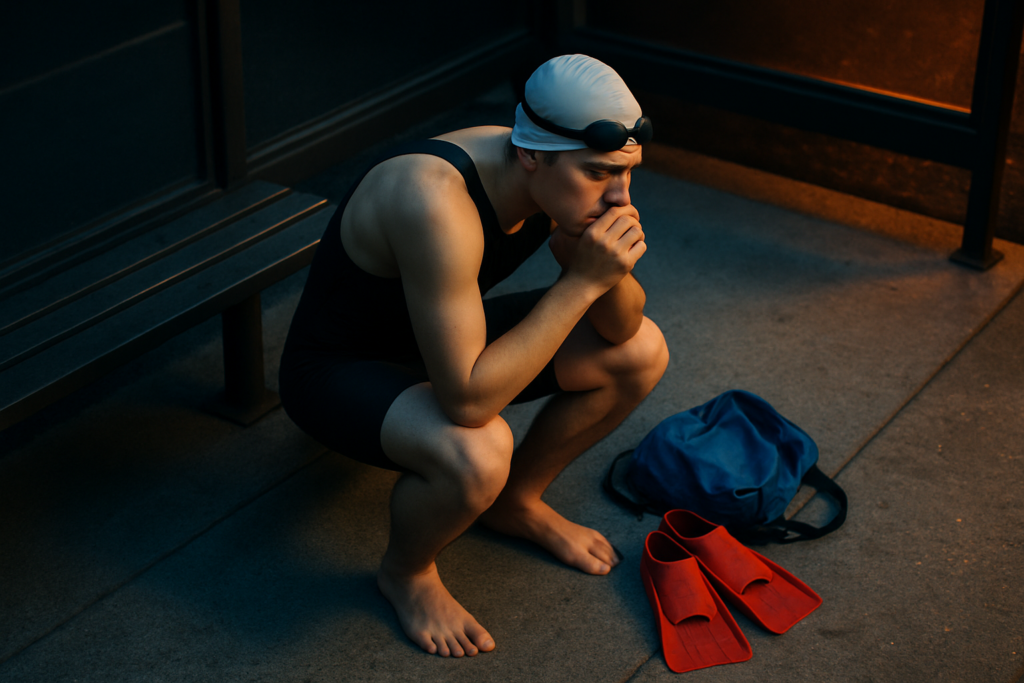As a seasoned swimmer, I know firsthand the power of self-talk in achieving success in the pool. Whether you’re a beginner or a seasoned athlete, the way you speak to yourself can make a significant difference in your performance. In the world of swimming, where mental strength is just as crucial as physical prowess, mastering the art of positive self-talk can be a game-changer.
In this article, I’ll delve into the impact of self-talk on swimming success and how harnessing the right mindset can propel you towards your goals. From boosting confidence to overcoming challenges, the words we say to ourselves can shape our swimming journey in profound ways. Join me as we explore the role of self-talk in unlocking your full potential in the water.
Understanding the Role of Self-Talk in Sports
In discussing the role of self-talk in swimming success, it is essential to grasp the psychological aspects of this internal dialogue. Understanding how self-talk influences athletic performance sheds light on its profound impact on swimmers’ mindset and outcomes.
- The Psychology of Self-Talk
I’ll delve into the psychology behind self-talk, revealing how this internal conversation shapes swimmers’ beliefs, attitudes, and ultimately, their performance in the pool. By exploring the cognitive processes involved in self-talk, we can uncover its significance in the realm of sports psychology. - How Self-Talk Impacts Athletic Performance
Exploring how self-talk directly affects athletic performance unveils its power to enhance or hinder a swimmer’s achievements. I’ll elucidate how the words swimmers use internally can influence their motivation, resilience, and overall success in the competitive world of swimming.
The Importance of Self-Talk in Swimming
The mental game in swimming is crucial, and self-talk plays a significant role in shaping swimmers’ mindsets and performances. Understanding the impact of self-talk on beliefs, attitudes, motivation, resilience, and overall success is key. Exploring how swimmers can harness the power of self-talk to boost confidence, overcome challenges, and achieve their goals is essential.
Types of Self-Talk for Swimmers
In swimming, self-talk can take various forms, including instructional self-talk, motivational self-talk, and positive self-talk. Instructional self-talk involves focusing on technique and skills during training or competition. Motivational self-talk helps swimmers stay motivated and push through difficult moments. Positive self-talk entails fostering a constructive and optimistic mindset to enhance performance and confidence.
Case Studies: Successful Swimmers and Their Self-Talk Strategies

Examining successful swimmers’ self-talk strategies provides valuable insights into how mental fortitude contributes to performance. Swimmers like Michael Phelps and Katie Ledecky have demonstrated the power of positive self-talk in achieving remarkable success. Their ability to maintain focus, stay resilient, and overcome setbacks through strategic self-talk showcases the importance of mental conditioning in swimming triumphs.
Techniques to Improve Self-Talk in Swimming
In enhancing self-talk in swimming, developing positive habits is crucial. By focusing on constructive language and affirmations, swimmers can boost their confidence and performance significantly. It’s essential to cultivate a routine that incorporates encouraging self-talk before, during, and after training sessions and competitions.
Developing Positive Self-Talk Habits
I believe that establishing positive self-talk habits is fundamental to success in swimming. Swimmers can achieve this by replacing negative thoughts with affirming statements. By consciously challenging and changing self-defeating language into empowering phrases, athletes can build resilience and a confident mindset. Regularly practicing positive self-talk helps reinforce a constructive inner dialogue that can propel swimmers to reach their full potential.
Techniques Used by Professional Coaches and Psychologists
I’ve observed that professional coaches and psychologists employ various techniques to enhance self-talk among swimmers. These experts often use visualization exercises to help athletes create positive mental images while reinforcing encouraging self-talk. Additionally, goal setting plays a vital role in shaping self-talk patterns, as establishing achievable objectives can drive swimmers to maintain a positive and focused mindset. By integrating these techniques into training programs, coaches and psychologists can optimize swimmers’ self-talk for improved performance and mental fortitude.
Measuring the Success of Self-Talk Interventions
Research Findings on Self-Talk and Swimming Performance:
In studies analyzing the impact of self-talk on swimming performance, researchers have consistently observed significant improvements in swimmers’ skills, mindset, and overall results. Positive self-talk has been linked to enhanced confidence, focus, and resilience during training and competitions. The data gathered from these studies reveal a clear correlation between athletes’ self-talk patterns and their ability to overcome challenges and achieve success in the pool.
Personal Assessment Metrics for Swimmers:
As a swimmer looking to assess the effectiveness of your self-talk interventions, monitoring specific metrics can offer valuable insights into your progress. Tracking variables such as race times, stroke efficiency, and psychological readiness can provide concrete indicators of how well your self-talk strategies are influencing your performance. By regularly evaluating these personal metrics, you can fine-tune your self-talk techniques to maximize their impact on your swimming success.


 is a passionate advocate for fitness and healthy living, blending her expertise in swimming with a dedication to overall wellness. With years of experience both in and out of the pool, she offers valuable insights on effective workout routines, nutrition, and lifestyle habits that support peak performance and vitality. Rosamie’s writing is characterized by its practical advice, encouraging readers to adopt sustainable habits for long-term health and fitness. She frequently shares her personal journey and success stories to motivate others, and her articles often include actionable tips that readers can easily incorporate into their daily lives. By focusing on a holistic approach to fitness, Rosamie aims to help individuals not only achieve their athletic goals but also cultivate a balanced and fulfilling lifestyle.
is a passionate advocate for fitness and healthy living, blending her expertise in swimming with a dedication to overall wellness. With years of experience both in and out of the pool, she offers valuable insights on effective workout routines, nutrition, and lifestyle habits that support peak performance and vitality. Rosamie’s writing is characterized by its practical advice, encouraging readers to adopt sustainable habits for long-term health and fitness. She frequently shares her personal journey and success stories to motivate others, and her articles often include actionable tips that readers can easily incorporate into their daily lives. By focusing on a holistic approach to fitness, Rosamie aims to help individuals not only achieve their athletic goals but also cultivate a balanced and fulfilling lifestyle.
